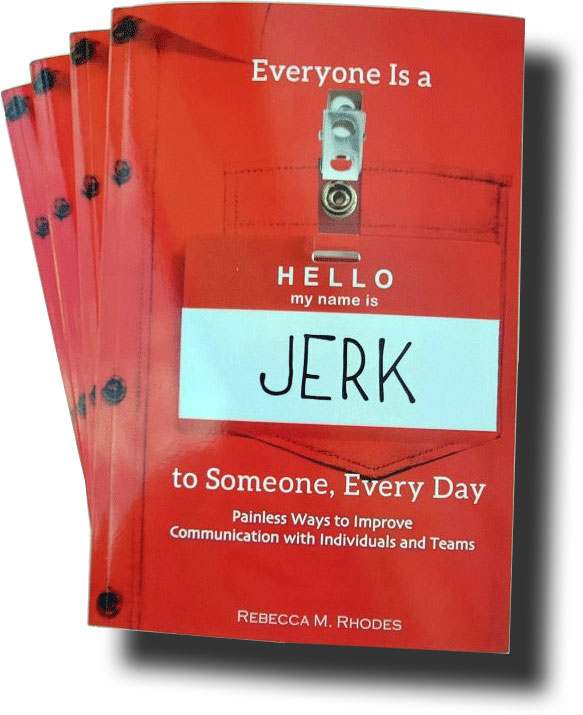Our History
1980
A Life-Changing Encounter
Rebecca met John Davies, founder of Identity Dimensions, in her role as Vice President and Director of Training for a large financial institution. She took what became a “life-changing” course. John’s “time management” course included a communication-style assessment and time management training. Its instant impact was so compelling that she immediately implemented the training program across the organization.





1989
Business Launch
Having successfully utilized the Time Communication training model in several arenas over the years, Rebecca saw the value of John’s assessment tool beyond time management. John had since retired, so she purchased the rights to the Time Communication model and left the financial industry to start her own business – Innovative Management Institute – primarily focused on small business and leadership group training.
1992 – 1999
Growth & Expansion
Rebecca expanded the business to include expertise in manufacturing and utilities bringing on large industry clients like a nation-wide paper mill and an international industrial chemical company.
Partnering with Rich Blumhagen, an international leadership consultant specializing in HR and Operations, Rebecca expanded the service model to include Coaching and Consulting, and changed the business name to Sextant Business Navigation Specialists, Inc.









2004 – 2010
Creating a Niche
Rebecca further expanded the business to include expertise in nonprofit, government, healthcare, and education with large contracts that includes a 15-state territory of an international Chrsitian nonprofit, Housing Authorities throughout North and South Carolina, public school systems in North Carolina, several City and County public agencies, and numerous health clinics and physicians offices.
2010
Rebranding
Giving the company a “refresh” to remain current with cultural changes in consumer behaviors, values and trends, Sextant Business Navigation Specialists rebranded under the d/b/a Institute of Leadership Development (ILD).
ILD welcomed Natalie Bruno to the team!









2012
The Loss of a Legend
After a highly successful career and 14 rewarding years with Sextant Business Navigation Specialists (d/b/a ILD), Rich Blumhagen retired. We were sorry to see him go. The wake of his loss was felt by all!
2018
Fully Automated
Capitalizing on today’s technology, ILD fully-automated its communication style assessment tool, creating an online platform and client portal.
Identifying an active interest from a broadening coaching industry, ILD expands its business model to include Licensing Agreements. Today, the transformative Breakthrough Communication Assessment Tool is used by numerous coaching & training companies to enhance their own communication training programs.





Today & Beyond
Breakthrough Communication remains a pivotal tool in reshaping workplace culture for organizations across the US. It is the foundation for all training, coaching & consulting provided by the ILD Team and grows further through Licensing Agreement expansion.
We earnestly believe in the transformative power of Breakthrough Communication to help people connect, express their feelings, navigate challenging situations, and build better relationships at home and work. It is our vision for the Breakthrough Communication model to become a household name and formative tool for business and individuals across the nation.
Everyone Is a JERK to Someone, Every Day
Painless Ways to Improve Communication with Individuals and Teams
Written by Rebecca M. Rhodes
Who Sounds More Like a Jerk to You?
Someone who hangs up before you are done talking.
Someone who stares out the window when you are speaking.
Someone who won’t let you forget your past mistakes.
Someone who justifies everything in response to a question.


We tend to judge ourselves by our intentions, while judging others by their actions. This often leads us to one thought... “Jerk!”
In Everyone Is a Jerk to Someone Every Day, communication expert and ILD President, Rebecca Rhodes, uses the Breakthrough Communication Model to explain how perceptions lead to misunderstandings that can be easily avoided.